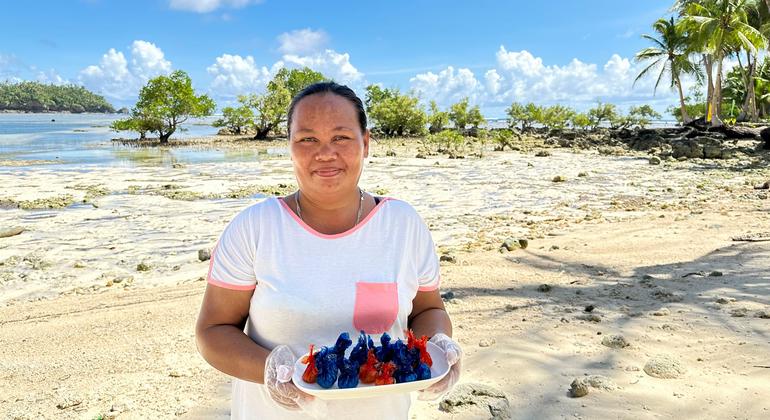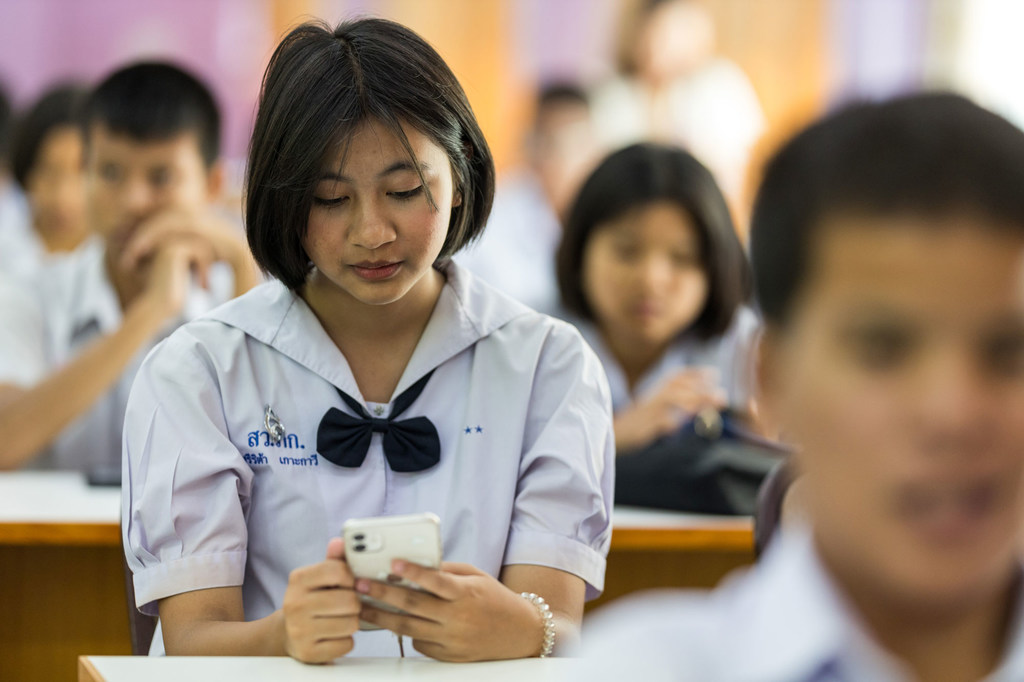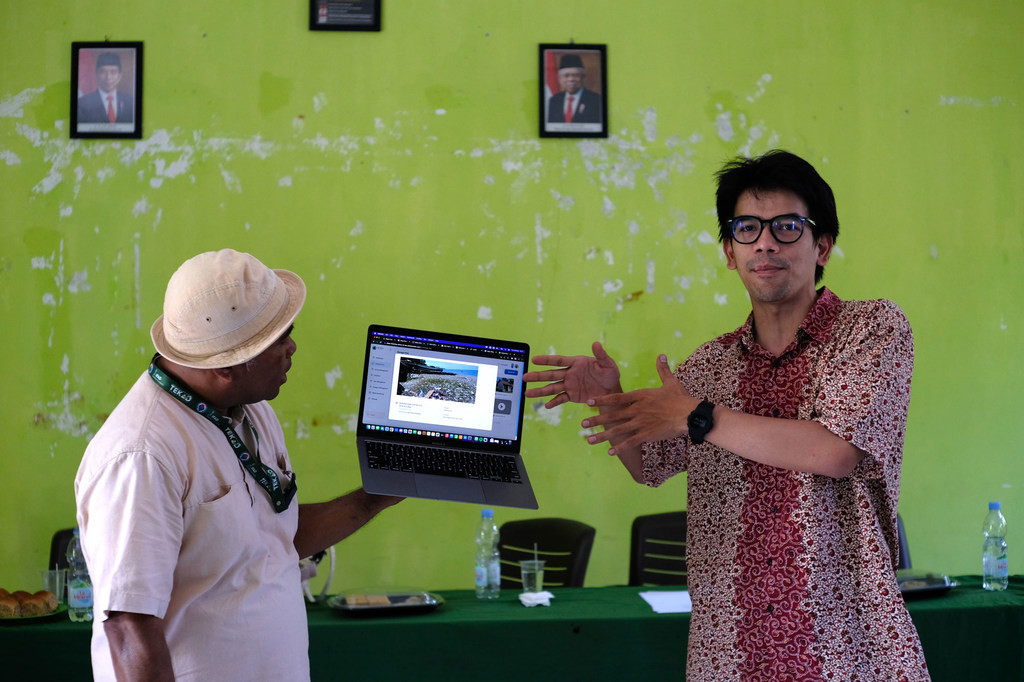Southeast Asia provides fertile ground for women to benefit from AI
 Artificial intelligence or AI technology can help to protect vulnerable women, give women a voice in male-dominated communities and increase training opportunities in Southeast Asia thanks to innovative approaches by United Nations agencies.
Artificial intelligence or AI technology can help to protect vulnerable women, give women a voice in male-dominated communities and increase training opportunities in Southeast Asia thanks to innovative approaches by United Nations agencies.
With AI enabled technology becoming commonplace, the UN System is beginning to take advantage of the latest digital tools to bring gender equality closer to reality
Southeast Asia, a middle-income region with widespread internet coverage and relatively high digital literacy levels, is fertile ground for AI enabled development. Here are three examples of initiatives that could help large numbers of women in their private and professional lives in the coming years.
The Philippines: Training entrepreneurs in remote areas
The Philippines is made up of an archipelago of thousands of islands that can be costly and difficult to reach from the country’s urban centres. This has meant that inhabitants of the more remote islands have often not been able to fully benefit from training opportunities offered by the UN and its partners.
Since December 2023, however, the International Labour Organization (ILO) has been supporting business owners, particularly women entrepreneurs, with the help of the latest AI chatbots.
“In many cases, trainers no longer need to travel to remote villages in far-flung islands and mountains,” says ILO Technical Specialist Hideki Kagohashi. “The trainer is a mobile phone chatbot.”
On Siargao Island, this chatbot is providing women selling coconut products with technical advice, and helping women entrepreneurs create digital marketing posts for Facebook, drastically reducing the time needed for daily posting from a few hours to just 10-20 minutes.
“Previously entrepreneurs often stopped posting because it took too much time over too long of a period to have demonstratable results,” Kagohashi explains. “But now with generative AI they can swiftly create higher quality content with relevant picture or video, more varied posts daily, complete with audience targeting for tone and content, leading to higher online engagement and increased sales.”
The project is still in pilot phase, but ILO and its partners will scale up AI-enabled coaching to reach at least 15,000 small and medium-sized businesses nationwide over the next three years.

UNFPA Thailand
High school students in Phuket, Thailand, use a UNFPA-backed chatbot.
Thailand: Protection for vulnerable women and girls
For around a year, the AI-powered SoSafe platform has been providing Thai women with tailored advice on social issues including unintended pregnancies, sexual harassment, and domestic violence, amongst others. Primarily used by women and girls in vulnerable situations, SoSafe contains verified information for youth, women and the elderly about their social benefits and rights.
The impact has been palpable: SoSafe is accessible to 600,000 users across 14 pilot provinces, has improved communication between affected women and support services and has led to over 1,000 cases of domestic violence being reported to the authorities.
The platform, delivered by the UN Population Fund (UNFPA), in cooperation with Thailand’s National Science and Technology Development Agency and other partners, detects keywords and provides automated responses to offer users timely support. The information on SoSafe comes from government databases and reliable sources, which helps ensure that users receive accurate information.

UNDP Indonesia
Village leaders in Indonesia testing STRIVE, a UNDP-backed AI tool
Indonesia: A stronger voice in the community
In Indonesia’s 75,000 villages, decisions tend be made by middle-aged men, who are more likely to attend open debates and meetings.
“Participation in village meetings is male dominated, and open voting can lead to stigmatization of those who may not agree with the head of the village, suppressing open discussion,” explains Dhany Oktaviany, the project manager of Social Innovation Platform (SIP).
SIP, a project run by the UN Development Programme (UNDP) in support of Indonesia’s Ministry of Village, aims to change this situation. As part of SIP, an AI-enabled digital tool gathers the aspirations of villagers and generates recommendations for subsequent village planning.
The application allows the village to send ideas in a wide variety of ways, from photos and videos to text and audio. They can also submit ideas anonymously, allowing different viewpoints to be expressed.
Reforming the UN
“Across the Asia Pacific region, we are working to build the capacity of the UN system to take advantage of the latest technological trends and thereby accelerate progress towards the Sustainable Development Goals,” says David McLachlan-Karr, Director for Asia and the Pacific of the UN Development Coordination Office. “These projects are a great example of technological innovation at the UN, which is at the heart of the Secretary General’s reform agenda to make the UN more fit for the needs of the 21st century.”



